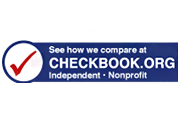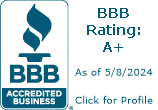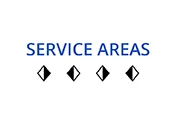Roof Replacement Costs
A good roof is a crucial investment to maintain the value of your property, but it’s a big investment as well. What kinds of things determine the cost of a roof? We’re glad you asked.
Quality Roofing Materials
A good roofing company will never skimp on quality materials. People looking for cheaper quotes will sometimes fall into the trap of deciding to use 15-year shingles instead of 30-year shingles. Don’t be a penny wise and a pound foolish. When it comes to building materials, you definitely get what you pay for.
In any event, the best roofers won’t even give you that option. They will do it with top quality materials for a fair price, or not at all. In addition, different materials will add variation to the price. A tin roof will be more inexpensive than a slate roof, for instance.
The cost of a new roof can vary widely depending on several factors, making it essential for homeowners to understand what goes into the pricing before starting a roofing project. Whether you’re replacing a damaged roof or upgrading your current one, knowing the elements that influence the cost can help you budget more accurately and make informed decisions.
Here are the key factors that contractors consider when calculating the cost of a new roof.
1. Roof Size and Complexity
One of the most significant factors affecting the cost of a new roof is its size. Roofing materials are usually priced per square foot, so the larger the roof, the more materials and labor will be required. Contractors often measure roofs in “squares,” with one square equating to 100 square feet.
Complexity also plays a major role. Roofs with multiple levels, steep pitches, dormers, valleys, skylights, or unique architectural features are more challenging and time-consuming to install. This complexity increases labor costs due to the need for more precise work, additional safety measures, and specialized skills.
2. Roofing Material
The type of material used for the roof replacement will have a significant impact. Here are some common roofing materials and their cost implications:
- Asphalt Shingles: The most popular roofing material due to their affordability and ease of installation. Costs can vary based on the type of shingles (3-tab, architectural, or premium).
- Metal Roofing: Offers longevity and durability but comes at a higher price point compared to asphalt shingles. Metal roofs can be made from aluminum, steel, copper, or zinc, with varying costs.
- Wood Shingles or Shakes: Offer a natural, rustic look but are more expensive and require regular maintenance. Wood roofs are also susceptible to fire, mold, and insect damage.
- Tile Roofing (Clay or Concrete): Known for their aesthetic appeal and durability, especially in Mediterranean and Southwestern styles, but they are heavy and expensive to install.
- Slate: Offers a timeless and elegant appearance with unmatched longevity but is one of the most expensive and heaviest roofing options.
- Synthetic Materials: Includes synthetic slate, rubber, or plastic shingles designed to mimic more expensive materials. Costs can vary widely depending on the type and quality.
3. Removal of Old Roofing
Before installing a new roof, the old roofing material usually needs to be removed, which adds to the overall cost. The removal process involves labor and disposal fees, which can vary depending on the material being removed and the roof’s condition.
If the existing roof has multiple layers, removing all of them can be labor-intensive and costly. Additionally, if the underlying decking shows signs of damage or rot, it will need to be repaired or replaced, adding further expenses.
4. Roof Pitch and Accessibility
The pitch (slope) of your roof affects the cost because steeper roofs are more challenging to work on. Steeper roofs require additional safety equipment, take more time to navigate, and make it harder to transport materials, all of which increase labor costs.
Accessibility also plays a role—if your home is surrounded by trees, has a small yard, or is otherwise difficult to access, it may take more time and effort to move materials to and from the roof, raising the cost.
5. Labor Costs
Labor costs can vary significantly depending on your location, the size of the roofing crew, and their level of expertise. In regions with a high cost of living or where skilled roofing contractors are in high demand, labor costs will be higher.
Additionally, the complexity of the roof can affect the labor rate. Simple, low-pitch roofs are less expensive to install than steep, complex designs that require more specialized skills and safety measures.
6. Underlayment and Insulation
Underlayment is the protective layer installed between the roofing material and the roof deck. There are different types of underlayment, such as felt and synthetic, each with its own cost implications. High-quality underlayment may increase the overall cost but offers better protection against moisture and damage.
Similarly, if insulation needs to be added or upgraded during the roofing process, this can increase the total cost. Proper insulation is crucial for energy efficiency and preventing heat loss or gain through the roof.
7. Roofing Accessories
Roofing accessories include flashing, vents, gutters, ridge caps, and drip edges. These components are essential for ensuring a well-functioning roof but add to the overall cost. For instance:
- Flashing: Used to prevent water from seeping into roof joints, such as around chimneys, skylights, and vents. Proper installation of flashing is critical for avoiding leaks but can be labor-intensive.
- Ridge Caps and Vents: Provide ventilation and a finished look to the roof. High-quality vents and ridge caps add to the cost but improve the roof’s performance and longevity.
- Gutters and Downspouts: While not always included in a roofing project, replacing or upgrading gutters can add to the overall price.
8. Roofing Permits and Codes
Most roofing projects require permits from your local government, which ensures that the installation meets building codes and safety standards. Permit costs vary by location and are typically based on the scope and value of the project.
Local building codes can also influence the cost. For example, some areas have specific requirements for wind resistance, fire ratings, or energy efficiency, which can impact material and installation choices.
9. Warranty and Quality of Materials
The quality of the roofing materials and the type of warranty offered can affect the cost. High-quality materials with long warranties are usually more expensive upfront but offer better protection and can be more cost-effective in the long run.
Many manufacturers offer various warranty options, including limited, extended, or lifetime warranties. Opting for a better warranty may increase your initial costs but can provide peace of mind and potentially lower long-term maintenance expenses.
10. Season and Timing of Installation
The timing of your roof installation can also affect the cost. Roofing companies are often busier during peak seasons, like spring and summer, leading to higher prices. Scheduling your project during the off-season, like late fall or winter, may help you secure a better deal, although weather conditions can be a factor.
Conclusion
Understanding the factors that influence the cost of a new roof can help you budget more accurately and choose the best options for your home. From the size and complexity of your roof to the materials and labor involved, every aspect plays a role in determining the overall price. By considering these factors, you can make informed decisions that balance cost, quality, and the long-term value of your new roof. It’s important to note that every roof replacement project is unique, so the cost can vary greatly depending on these and other factors. It’s always best to consult with a roofing professional to get an accurate estimate for your specific project.
Always research roofing contractors on Better Business Bureau and by asking friends, family and neighbors. It’s more important that you get the job done right than cheaply.
For a free roof replacement quote in Northern Virginia, call Style Roofing! (703) 754-9906.











